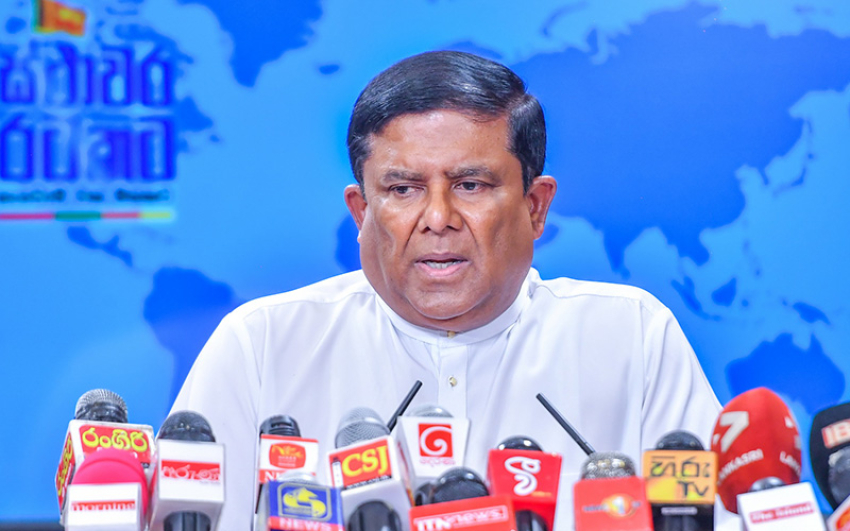He emphasized that the public should be aware of the groups making false promises and warned that if the people make a mistake again, it cannot be undone.
These sentiments were shared by MP Wajira Abeywardena during the media briefing at the Presidential Media Center (PMC) today (09), held under the theme “Collective Path to a Stable Country.”
MP Wajira Abeywardena further commented:
We should all remember that every government that came to power after independence has done its utmost for the country, though there have been weaknesses. President Ranil Wickremesinghe has worked to address these on-going weaknesses. For instance, Articles 27 and 28 of the Constitution outline the principles and basic duties guiding public policy, focusing on how rights can be granted to the public. However, Article 29 lacks accountability and does not assign any legal rights to protect democratic politics. Additionally, there is no provision for courts or tribunals to enforce the promises made by politicians.
In this context, the country’s political parties have continuously made false promises to the public, leading to periodic collapses.
To address this situation, the current President has submitted the Economic Transformation Bill to Parliament to ensure accountability for Articles 27, 28, and 29 of the Constitution. This 165-page bill aims to protect the rights of two million people.
According to Articles 148, 149, 150, 151, and 152 of the Constitution, the primary responsibility of members of parliament elected by the public is related to public finances. However, this financial responsibility is undermined by the false statements made by political parties. To prevent this, the budget office has presented the bill to Parliament to verify and report the accuracy of claims made by political parties.
President Ranil Wickremesinghe took significant steps by presenting the Economic Transformation Bill to Parliament, thereby strengthening that article in the Constitution to end the era of political parties making false promises.
Ranil Wickremesinghe took his oath as a Member of Parliament on June 23, 2021, warning that the country was in decline and urging careful action. He advocated for an immediate approach to the International Monetary Fund and a change in the country’s direction, but these recommendations were not implemented by the then rulers, rendering their governance ineffective.
Subsequently, on May 12, 2022, Ranil Wickremesinghe, the leader of the United National Party who held only one seat in Parliament, was sworn in as Prime Minister. Following the Constitution, he gained the support of all political parties in Parliament and received 134 votes on July 20, thus assuming the role of the eighth executive president of the country.
Two years ago, the President took over a bankrupt country and, with the support of the international community, managed to stabilize the economy. However, challenges remain. The country has until 2027 to repay its foreign debt and currently holds about USD 500 million in foreign reserves. The Economic Transformation Act aims to build the country by initiating projects to increase the income of the Sri Lankan public. This law sets a target economic development rate of 5% by 2027. Additionally, the President has ensured that the responsibility of political parties is enshrined in law for 2030 and 2042, regardless of who is in power.
We must proceed with caution. If anyone is pushing the country toward another mistake, we need to identify them. For example, a list of liars should be displayed in the village to help the public recognize the groups that deceive them with false promises. If we make another mistake this time, it will be a serious, irreversible one. Therefore, we must act very carefully now.
When appointing leaders, the Sri Lankan public must consider this carefully. If anyone other than Ranil Wickremesinghe is deemed suitable for the next presidency, it is essential to evaluate their suitability thoroughly. The public bears a significant responsibility at this time.
At the moment, some parties are on strike. Having failed to win the elections, they are attempting to destabilize the country. According to the Secretary to the Ministry of Finance, to meet the wage demands of the strikers, the VAT would need to be increased from 18% to 21%. This would result in higher costs for everyday items like a cup of tea and a packet of rice, burdening working people. This could push the already bankrupt country back into a dangerous situation, and we believe the entire Sri Lankan public will not support this.




















